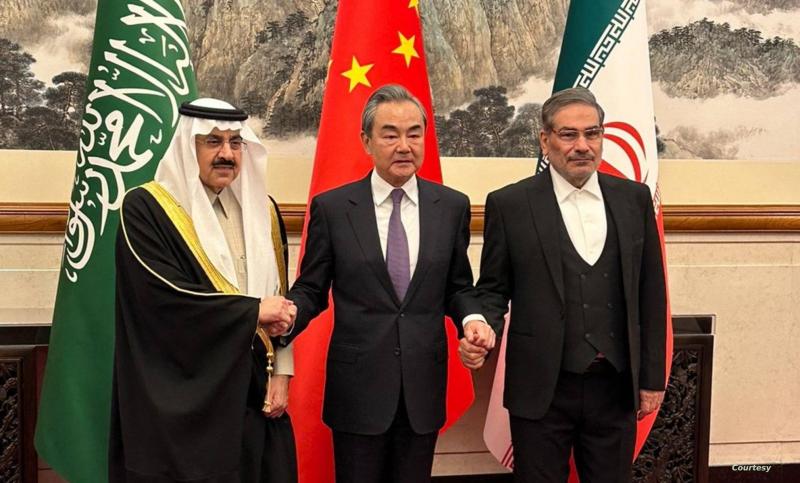Saudi-Iranian relations have returned to normal through China, with President Xi Jinping's initiative successfully persuading the two countries to immediately support the development of good neighborly relations and resolve their disagreements through dialogue and diplomacy. The first fruits of the agreement included the approval to reopen the embassies of both countries and their representations within a maximum of two months, with the Saudi and Iranian foreign ministers expected to meet to arrange for the exchange of ambassadors and discuss ways to enhance relations. It was also agreed to activate the security cooperation agreement along with the general cooperation agreement in the fields of economy, trade, investment, technology, sciences, culture, sports, and youth. This significant development is expected to have a positive impact on all countries in the region and on all complex issues and conflicts within it.
Hezbollah's Secretary-General, Sayyed Hassan Nasrallah, considered the shift towards Saudi-Iranian rapprochement to be good and not at the expense of the region's peoples but rather for their benefit, emphasizing that if this rapprochement continues on the right track, it could open new horizons in the region and in Lebanon as well.
Saudi Arabia severed relations with Iran in 2016 after its embassy in Tehran was stormed during a dispute between the two countries. In recent years, Saudi Arabia has held Iran responsible for missile and drone attacks on its oil facilities in 2019, as well as attacks on tankers in Gulf waters, which Iran denies. Wang Yi, China's top diplomat, described the agreement as a victory for dialogue and peace, adding that Beijing will continue to play a constructive role in resolving difficult global issues.
A spokesperson for the White House National Security Council stated that Saudi Arabia, looking to expand its partnership with China, kept the United States informed of the talks in Beijing, but Washington did not participate directly.
The strategic relationship between Saudi Arabia and the United States, longstanding since ancient times, has become strained under President Joe Biden's administration due to the war in Yemen and recently due to Saudi relations with Russia and OPEC+'s oil production policy. In contrast, President Xi Jinping's high-level visit to Saudi Arabia three months ago highlighted the growing ties between the Kingdom and China. This juxtaposition illustrates the differences between Biden's visit to Saudi Arabia and the public disputes that arose, as well as Xi's visit and the agreements that were signed.




